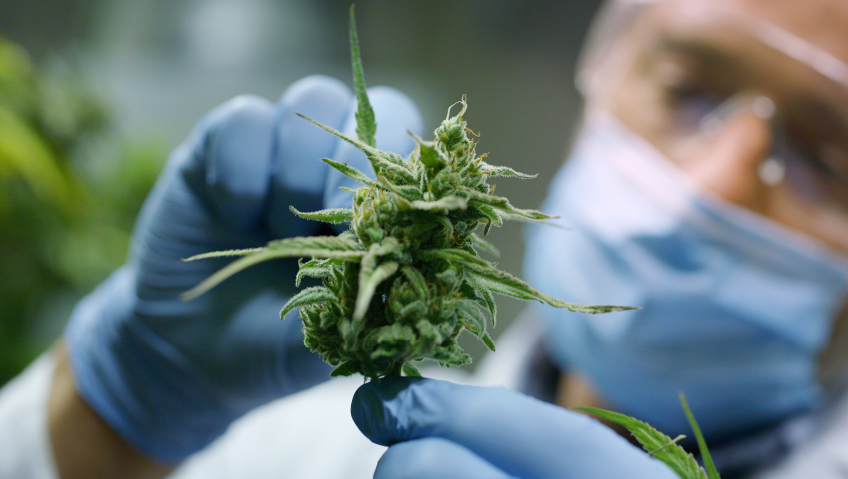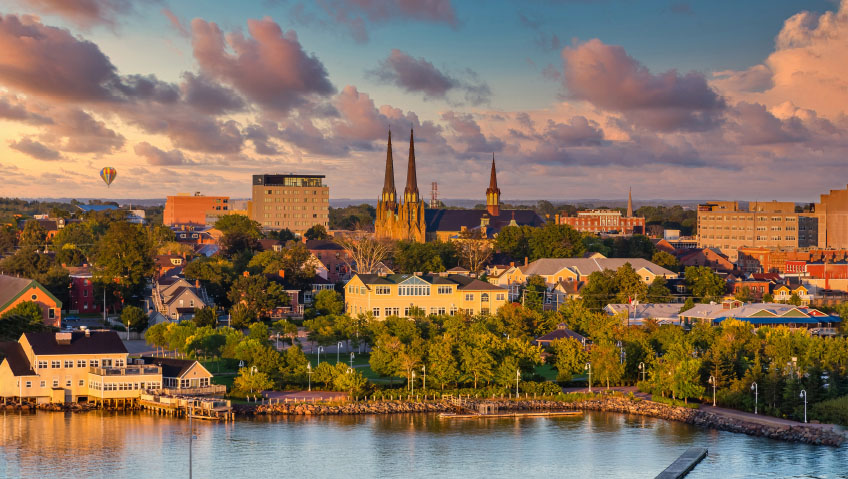Finding true, long-lasting success in any business requires having passion for the process, and Nova Scotia-based Truro Cannabis has it in spades.
“Our growers love what they’re doing, and that’s probably the ultimate advantage that Truro Cannabis has,” says President Lennie Walser—and the hardest part, too, he adds. “They love it so much they’re never satisfied with what they’re doing. They can always do better in their head when they produce some extremely high-end product. Earnest is probably what I like to say about our team. They have a passion for the product, but also are very smart and always looking to do something new and upgrade and keep educated.”
Self-described “cannabis purists,” the company combines innovative plant science, established cultivation procedures, and craft genetics, resulting in exceptional cannabis products for both medicinal and recreational purposes, all wrapped up in environmentally friendly packaging.
Licensing, of course, is a vital and necessary part of cannabis production in Canada. Housed in two facilities within one-and-a-half kilometers of each other in the Truro Industrial Park, the company’s main facility has a Standard Cultivation License, which means based on its size and security protocols it’s allowed to grow cannabis flower at a larger scale within its legal footprint. The Micro Cultivation License is for the smaller facility which is designated as a micro cannabis facility with a limited canopy size, only allowed to grow in a limited footprint of canopy.
“The Standard Processing Licensing, which is actually the difficult one to achieve with Health Canada, is all done in our main 45,000-square-foot facility,” says Walser. “Our micro, as it’s a separate license, sells a small [quantity of] product back to our main facility.”
Standard processing allows Truro Cannabis to get product into saleable form up to the standard set by Health Canada and the Cannabis Act and Regulations. The company also has the ability to make hash on site and the ability to purchase bulk product.
Indeed, while some other brands simply procure and package, the Truro Cannabis team handles all aspects themselves on site. “Everything Truro Cannabis does as far as organic flower, we grow ourselves in our own facilities,” adds Walser. “The advantage of doing everything in-house is that our control of inner standards is all on us, which makes a big difference for consistency and repeatability.”
Truro Cannabis proudly embraces its advanced plant science and its ability to create outstanding product from start to finish.
“When bringing up the cultivation techniques and genetics and the plant science, you don’t have that control as a contract procurer of cannabis if it’s done somewhere else. I’m sure the product might be very nice—and it’s not a shot at those companies—but we have our own team of master growers, some who have been doing legacy growing well before legalization, and some who are literally plant science graduates from our local college.”
So, if you’re looking for that strategic advantage, what Truro is doing will result in a better opportunity long-term to control each batch.
Although the business of cannabis is legal across the country, the population of the Maritime provinces is small—barely a million people—meaning the business model is also smaller. Stores are housed in 40 Nova Scotia Liquor Corporation (NSLC) locations across the province, approximately 20 in New Brunswick, 41 in Newfoundland, and four in Prince Edward Island. In contrast, there are approximately 215 stores located in the city of Toronto alone. While Ontario stores are tightly regulated, they are private retail models.
“As much as the local government-run facilities have been great to us and supportive of our business, I do like the culture and difference I see in Ontario and Alberta,” adds Walser. “I do personally enjoy that more. I think it just brings more culture and moves the industry forward. It’s not a shot at our provincial groups, I just think it’s fun to see all the different branding and see how everyone does it, versus a cookie cutter [model].”
The team at Truro Cannabis likes to think of cannabis growing as an art as well as a science. Everything the company does is on the leading edge; this means incorporating numerous advanced sensors in growing rooms for microclimates, ensuring that lighting, temperature, and humidity are all on point and that nutrients and feeds are accurate for each stage of the plant.
“We’re using the traditional cultivation techniques, but again, getting a little bit more finite or micro with some things that maybe weren’t traditionally done,” Walser explains. “Things like potential nutrient deficiencies, doing tissue culture analysis, and adjusting the formula—that wasn’t done in the legacy, historic world because they didn’t have those facilities and testing available.”
One of Truro’s advantages is the ability to pull in 200-plus genetics developed over the years, which affords the company a competitive edge. “We were fortunate to have that when we got our license, and that is probably one of the things we’re most proud of,” Walser says. “I like the word exotic. [We offer] rare, unique, and traditional genetics that I think would be very appealing to the cannabis connoisseur.”
This advantage also sparks the passion of Truro’s team, he adds. “There’s nothing more exciting than when they get to pop their seeds. But when we crack the seed, it’s 12 months-plus before that potential genetic or cultivar will ever see the light of day of anyone being able to purchase it at retail. It’s a very long process.”
And it’s a process most—if not all—customers have little understanding of. Growers start with 25-plus seeds and grow up those 25 plants, evaluating every one of them for cannabinoids, shape, weight, and appearance before eventually trimming the selection down to a final one.
“It takes well over a year, and it’s the R&D process that we go through of bringing out new cultivars that takes that long—but it’s also fun and exciting,” Walser shares.
The industry does still face certain challenges. Every cannabis company in Canada, whether private or publicly funded, has very little access to bank loans or funding from federal or provincial governments. As a private company, everything Truro Cannabis has done has come from private shareholders, with wins or losses coming out of those private persons’ pockets.
“A lot of earlier, licensed companies did not succeed in profitability and are struggling financially,” says Walser. “So now a cannabis business going to banks is too high-risk a profile because so many have lost money and gone under.”
The Excise Tax Act (ETA)—a federal law governing the administration and collection of excise taxes levied on specific goods and services, including cannabis produced in Canada—is another ongoing concern.
“I’m not actually opposed to the Excise Tax, but I think fundamentally, when it was created, the model was looking at a much higher price per gram at retail. The essential concept was the 10 percent tax rate, but because the cost per gram has gone down and the excise tax is not a percentage of the selling price, you’re getting some cannabis sales where anywhere from 25 to 50 percent of the sale is now excise tax.”
The biggest issue right now is having a fixed rate for flower versus a percentage, and it’s the same on the extract side, which is essentially 10 cents per milligram of THC, he adds. “Again, I would much rather it be a percentage based on the dollar value. Essentially, we do some concentrates and the excise tax is pretty much half the price. It’s almost essentially 40 percent of our wholesale product number.”
Walser also brings up issues within Nova Scotia and all provincial wholesalers: Cannabis is the only industry where it can take a year to create a new product without the guarantee to sell it to a consumer unless a provincial licensing body decides to put it into their menu.
“So there’s a risk that you can take a year, grow a million dollars’ worth of product, and not actually be able to get in front of the consumer,” he says. “That’s probably our most stressful thing. It’s a gamble for a cannabis company to create a new product and potentially not have it listed.”
Truro Cannabis has managed to be pretty lucky in this area, however, although luck isn’t the only reason for its ongoing success. “There are a lot of companies that had a lot more money and resources than us that are no longer in the space. So we do feel pretty blessed that we’re still around,” says Walser.
While the goal is to remain profitable for shareholders in upcoming years, he foresees some regression in the industry without significant regulatory changes. Another goal is licensing for export opportunities and developing more of an international profile.
“We’re nearly a national brand and we definitely have cannabis in almost every province and on both oceans, so I’m pretty proud of that,” he says. “We don’t do a lot of marketing. We’re in a small town—Truro, Nova Scotia, with about 17,000 people—and when we see our logo and merchandise appear across Canada it kind of warms the heart a little bit.”
Along with the commitment and pride that fuel the company’s ongoing growth and success, Walser again mentions the passion of all team members to keep creating the best quality product for consumers.
“It’s the motto of Truro Cannabis and the unofficial mission statement that if we won’t smoke it, we won’t grow it,” he says. “That’s basically what sets us apart from some of the other companies. We also don’t do things the easy way; we don’t take shortcuts.”
That means taking the right length of time to ensure the highest-quality seed for the highest-quality weed. “There’s an art to it, and taking the time to do it is key,” says Walser. “I think that’s what’s going to set us apart long-term. Consistent, quality product every time is what we shoot for.”






